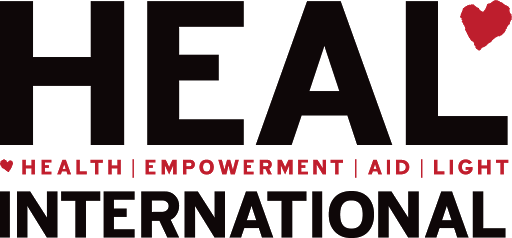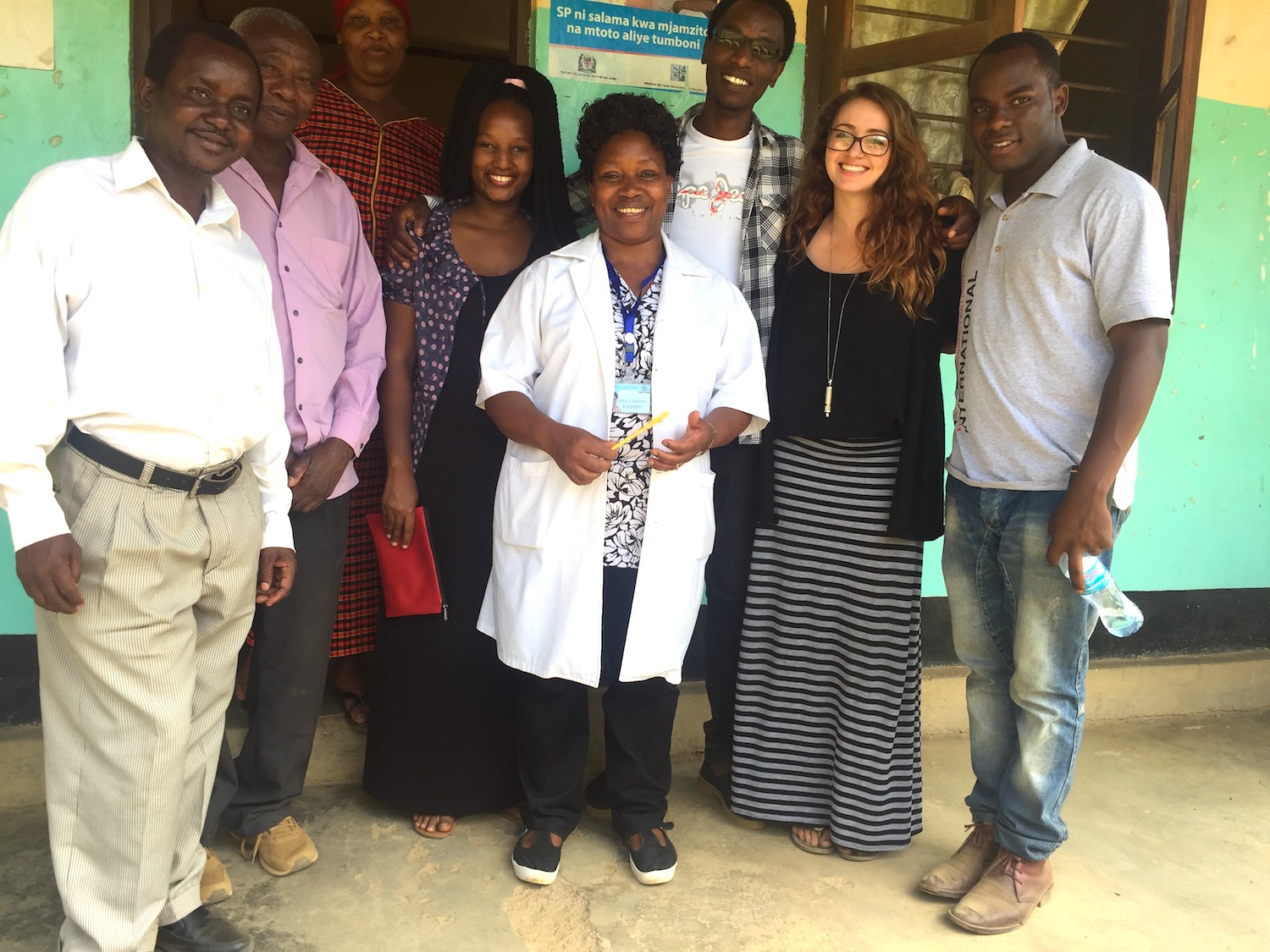Lessons Learned from a Community Development Project
HEAL International's Team with Dr. Lucy and the Project Committee at Kimundo Dispensary.
This year, HEAL International collaborated with the Kimundo Dispensary, a health facility that provides services to more than 6,000 community members, to ensure that the dispensary had the resources necessary to care for their patients. Previously, the dispensary did not have running water inside of the facility, making it incredibly difficult to care for and clean up after patients. Although there was a water tap outside, it was not reliable, and some days there was no water available for the dispensary at all. The lack of running water severely constricted daily operations of the dispensary and negatively impacts the health services provided to the community.
HEAL International recognizes that these challenges do not support a healthy community, so we teamed up with the doctors at the dispensary, as well as community leaders, to ensure that this facility could have access to running water.
Renovations were segmented into two phases. Phase one started by installing plumbing and a water tank riser. Phase two was installing a water tank, ensuring water gets inside of the buildings, and installing sewage systems.
With the additions of a water tank riser and plumbing, the staff will no longer be concerned with gathering water. The head doctor, Dr. Lucy, is able to quickly wash her hands to assist her patients, and they are able to wash themselves if needed. The toilets have water taps to improve sanitation. The dispensary will be better equipped to ensure a clean environment, equipment will be more clean, and patients will have better health outcomes.
As anyone in community development can attest to, there are always challenges that are encountered and must be dealt with on both the community and the organization side. We hope to share some of the challenges we encountered in order to better learn for future development projects.
Challenges:
- There were changes in time frame for the phase one to be completed due to the weather conditions and demand for extra building materials other than the ones we first allocated for (bags of cement, wire mesh, extra bags of sand, extra bricks, inlet outlet pipes, a 3000 litres water tank+its accessories, and changing of taps for sinks). This caused tension between the groups because of missed expectations.
Our team hired fundis (or local engineers) from the community at a very optimistic and minimum wage to complete the project. There were some challenges with expertise, timing, and quality, but we hoped to strengthen community involvement by hiring local engineers.
Our team experienced some misunderstandings with the dispensary health committee as they wished to be more involved during some stages of project implementation. Gladly we managed to delegate tasks and hold regular meetings with the committee for maximum involvement.
Lastly, we learned that the community puts very high expectations on donor funded projects such as this one, a mindset that might hinder the way they view the work or the organization who is supporting it. We are glad that we managed to instill the spirit of working together and taking responsibility for the project, and hope to empower communities to not rely entirely on donor organizations in the future.
Dr. Lucy and the other health workers at the dispensary can safely wash their hands during and between patient visits.
Recommendations:
- Before launching any community project, there must be a meeting between the organization team and beneficiaries with the intentions of explaining everything in details. We really want to have a plan that is built with the community, and not just given to them. A meeting that brings everyone together before the project starts, and not just the leaders, is a good way to achieve this.
Having guiding document prepared by the organization and signed with both parties was/is very helpful in managing all the activities and ensuring clarity. We were able to develop project plans and budget sheets which were provided to the community and the government officials. This really supported the project and had everyone understand what was happening.
Beneficiaries/ stakeholders participation in the project is very crucial.
It is also recommend that HEAL team must be constantly reminding beneficiaries on the agreements set to avoid any misunderstandings. This should happen through regularly scheduled meetings.
Acknowledgements
We believe that the community and HEAL International have been empowered through partnership and can work together in the future. We also believe this is a stepping stone for the community to be able to execute other phases of the project to ensure a workable dispensary that serves it’s patients.
On behalf of HEAL International and the Kimundo Dispensary, thank you for your thoughtful donations of more than $1000 and all of the hours that went in to supporting this project.
We would like to give our special thanks To Mr. & Mrs. Peter Ole Sabay, Mr. Nicholas Antony, Prof Jacob, Dr. Damien Salamone, the HEAL Board of Directors, and any other individual who devoted their time and show endless love to complete this project.
We would also like to give thanks to Sarah Mure, Holly Celaya, our HEAL Tanzania team namely Haroun Jeremia, Godlisten Mbise, Rosie Maina and Erick Matthew for advising and coordinating the project execution.
We also want to thank the labor force for the construction job they have done, Mr. Jacob Sumari and Amos Mbise.
Most importantly, we want to thank the community of Kimundo and Akeri, Dr. Lucy, the leaders of the project committee, all of the staff at Kimundo Dispensary, and the District Medical Officer Dr. Kilasara for your time, support, and commitment to this project.
To complete this project, HEAL International crowdfunded $1,100 led by Community Health Facilitator Nicholas Anthony. Below is a brief report of the challenges encountered, recommendations, and acknowledgements.


